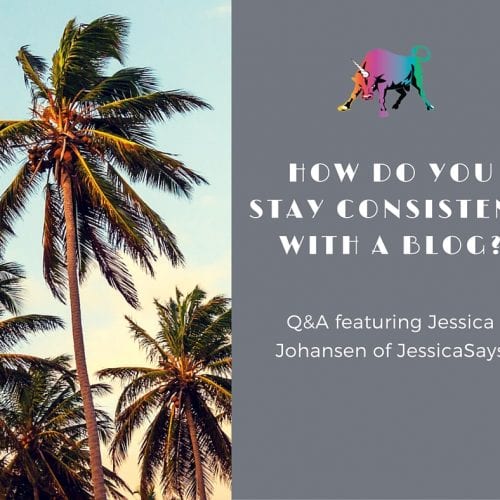A Bullish reader recently emailed me about, among other things, the bad relationship she can’t seem to get out of:
I’m in a relationship with someone I’m not happy with. I feel like not leaving him is helping him. He often gets very depressed and while his depression and misery is a major source of what’s driven me away (he’s critical of me and we agree on very little), it’s also what is keeping me around. and it pisses me off. I’m scared and angry and I can’t focus on the one sure thing I have, which is my education.
I know this is my fault, I was so damn in love and when we were still very new, he criticized everything I did. There was literally nothing I did that was right. I actually have tried twice to break up and he’s gotten upset, said some shitty things and just been like we can’t break up.
(Note: The writer of this letter was not in an abusive relationship, just a bad one. The rest of this article will deal with situations that are not violent or life-threatening. If you are involved in an abusive situation, please contact the National Domestic Violence Hotline or another trusted resource.)
And just yesterday, the Harvard Business Review published a piece on Dealing with Your Incompetent Boss. In this article, which weighs leaving versus going over a bad boss’s head versus making the best of a bad situation, one woman who has chosen the latter says, “I’ve accepted and embraced that it’s my choice to stay here. Knowing that this is something in my control and I’m not a victim has helped me tremendously.”
I want to talk about being stuck and getting unstuck.
You need to believe that you don’t belong in that situation.
When my dotcom was failing in 2002, I got this weird allergic rash. Maybe it was related to stress. In any case, it was precisely the sort of thing where you go to the doctor and you get some medicine and it goes away. And yet, my company had been failing, and I was so depressed for so long, that I didn’t actually believe I deserved medical care. The lower you allow yourself to go, the harder it is to believe that you deserve even basic well-being, much less happiness and flourishing.
Give in to an abusive boss or a soul-sucking boyfriend for too long, you will find yourself covering for that person, playing down the bullying so as not to be embarrassed that you’ve allowed yourself to suffer so much. And the power of inertia is no joke — spend long enough sleeping in the same bed with someone, it can seem as though that person is your cosmic destiny, and that you are simply a tragic figure who has been assigned to this destiny, like a tree with its roots growing into the Chernobyl soil. Sometimes emotions are very wrong.
If you can swing it, abscond to a foreign country for just a few days. Alone. Or just check into a friend’s spare bedroom (preferably someplace you’ve never been before) for a visit. Go anywhere where everything is completely different. And then look at your circumstances from the outside and say, “Oh, that’s ridiculous. No rational person would put up with that. I’ve been mistaken.” When you’re stuck in quicksand, you can be distracted into thinking about which parts of the bog are sinking slightly less slowly than others. Once you’re out, it’s pretty clear that you don’t want to go back at all.
And then, don’t be afraid to simply admit that you were mistaken, and that it is a rational move for you to now take a different course of action. When something really embarrassing happens (e.g., leaving the ladies room with your skirt tucked into the waistband of your tights), the only thing that really ameliorates the embarrassment is: “Wow, this is embarrassing!” Magically, it is now less embarrassing! Similarly, admitting that something was really bad for you and it took you awhile to realize it makes change so much easier. For instance, ending a business partnership: “You know, we’ve been working together for so long, it took me awhile to realize that the mutual benefits that worked so well for both of us in the beginning weren’t actually occurring anymore. I’ve been moving in the wrong direction for several months now….”
If you tell someone that something that’s supposed to be mutually beneficial isn’t benefiting you, it takes a real asshole to say, “Do it anyway.” And if you politely report that a job isn’t helping you get to the next step in your career, it also takes a real asshole to say, “Do it anyway.” Of course, the world is full of assholes. But the world is also full of people who will respect you more for calmly and rationally changing your situation.
Have you done something wrong? If not, don’t act like you have.
I talked last week in Bullish Life: How to Communicate with Chutzpah about people who speak as though they are doing something wrong when they aren’t. Similarly, you’re not doing something wrong by trying to get out of a job, relationship, friendship, etc., that isn’t working for you. All of those things are supposed to be mutually beneficial. If you’re not benefiting, you should leave.
Many of us are much harder on ourselves than we are on others. It helps if you can imagine yourself from the outside: This person is totally miserable living in the same town as her toxic family and wants to leave. A lot of us would concoct an excuse (all the good jobs in my field are elsewhere!) and try to persuade others of it. You don’t have to persuade others of anything. If you can look in at yourself from elsewhere, it should be pretty easy to say that that girl should go do what’s best for herself. You don’t have to apologize or make excuses to get out of a crap situation. You can just say things like, “After weighing all the options, I’ve decided that Chicago is the best place for me.” Only douchebags would argue with that.
(See Bullish: Are You Thinking Too Small?)
Treat your future self well.
Do you ever imagine going back in time and helping your former self? The awkward twelve year old, the despondent teenager? Don’t you want to go back and give her some advice, and tell her that things are going to turn out just fine?
So, why not be as kind to your future self?
Imagine her now — add just five years to your age, and picture that woman. She’s nice, right? You want good things for her?
If you have trouble doing the things you need to do to take care of yourself, well … take care of her instead. She doesn’t deserve your crap boyfriend who puts you down all the time, and she doesn’t deserve to get an ulcer from her awful fucking job. Why would you do that to her? Why would anyone?
Harvard professor Daniel Gilbert, in the book Stumbling on Happiness, talks about why we’re so bad at making ourselves happy — mainly because we are really, really bad at anticipating what our future selves will like and want. According to Gilbert, research into the brain demonstrates that our own predictions of what we will like in the future are actually less accurate than asking a total stranger if he or she likes something — that is, if you want to be a lawyer, your imagination won’t help much, so just go ask some lawyers if they like being lawyers. But as I read this, I couldn’t help but be struck by the advice that Gilbert didn’t give — while you can’t predict just what your future self will want, you can definitely predict that she doesn’t want things that objectively suck, and she wants the resources and freedom to have and pursue whatever it is that she really does want. She wants you to get out of crap situations, put some money in the bank, and leave her options open.
If you need a mojo boost: keep in mind that major life shifts, while temporarily painful, are ultimately easier than incremental improvements (see Bullish: When To Make Massive And Ballsy Life Changes For Your Career). People usually stop incremental change before it’s done. We make life a tiny bit more bearable, and then we relax prematurely once we have some breathing room, and then we’re stuck in an only slightly better place. Your future self deserves better. Just … move, go, quit, start something. Go. Major change is easier and more fruitful than trying to fix what can’t be fixed.
I’ve also written several times about aging — see Bullish: How to Use Your Age to Your Advantage (at Any Age) and Bullish: What to Do About Being (Temporarily) Pretty. Carry forward this thought experiment and imagine your forty-year-old self, and your sixty-year-old self. Set her up! She won’t necessarily have the energy (and youthful good looks!) you now possess. Work on getting her the life she wants so she can relax on a beach in Grenada.
originally published on The Gloss









